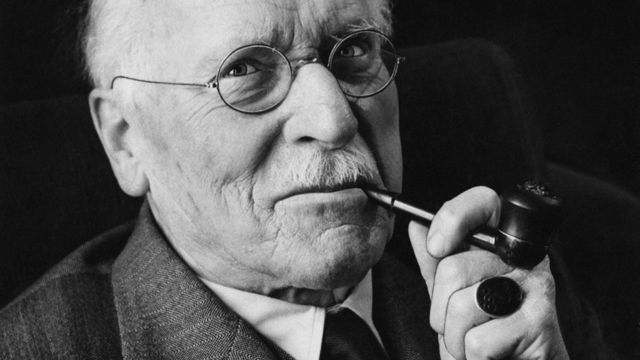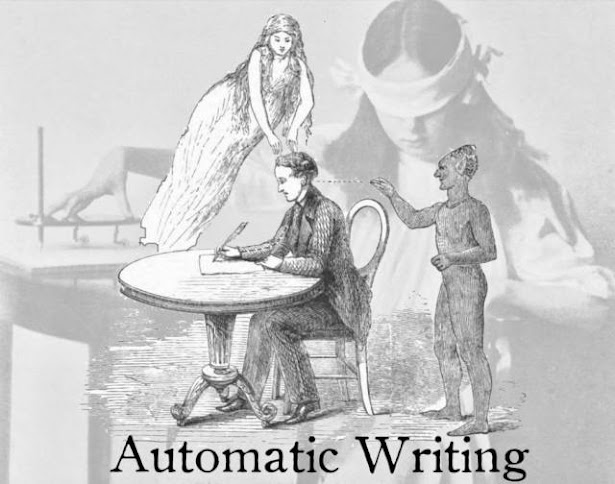Richard Dawkins Relates A Story About Carl Gustav Jung That Never Happened.
“Dawkins and Hitchens miss two important points. First, their critics are not only talking about their scholarly limitations but about their errors, errors that a more informed or careful critic wouldn’t make…”.
Curtis White, The Science Delusion: Asking the Big Questions in a Culture of Easy Answers (with new afterward; Brooklyn, London: Melville House, 2014), 35.
As you surmise, Dawkins has conflated the two episodes."—Sonu Shamdasani
So, there it was. An email from one of the most distinguished
Jungian scholars in the world confirming what I felt sure I already knew, namely, that in
an attempt to make an appeal to an incident in the life of Psychologist Carl
Gustav Jung, Richard Dawkins had somehow conflated two real incidents that did happen into a single one that did not happened. This is not of course the
only place Dawkins makes such flubs in The
God Delusion (see, e.g.,
Richard Dawkins Bemoans/Models
Biblical/Biblical Illiteracy). Both cases speak to Atheist writer
Curtis White's comment on how Dawkins' "critics are not only talking
about...scholarly limitations but about...errors that a more informed or
careful critic wouldn’t make."
Anyway here is what Dawkins wrote:
"It is
in the nature of faith that one is capable, like Jung, of holding a belief
without adequate reason to do so (Jung also believed that particular books on
his shelf spontaneously exploded with a loud bang)." (The God Delusion [Boston, New York: Houghton Mifflin,
2009], 51).
But Dawkins is confused. Nothing like that ever happened. Rather Dawkins clumsily conflated two different incidences. The first is the famous 1898 incident in which a knife inexplicably
exploded into four parts while locked in a sideboard cupboard and the second the
equally famous 1909 incident when Jung was visiting Freud in Vienna and both
were startled by a loud report suddenly coming from Freud's bookcase.
Immediately after that first report, Jung predicted a second would occur,
which duly happened. Both incidents are frequently referred to in writings by
and about Jung. Let us turn then to the accounts of these two incidents.
The Exploding Knife
I feature the account in Jung’s own hand in a letter he wrote in
1934 to J. B. Rhine:
The knife was
in a basket beside a loaf of bread and the basket was in a locked drawer of a
sideboard. My aged mother was sitting at a distance of about 3 meters near the
window. I myself was outside the house in the garden and the servant was in the
kitchen which is on the same floor. Nobody else was present in the house at
that time. Suddenly the knife exploded inside the sideboard with the sound of
an exploding pistol. First the phenomenon seemed to be quite inexplicable until
we found that the knife had exploded into four parts and was still lying
scattered inside the basket. No traces of tearing or cutting were found on the
sides of the basket nor in the loaf of bread, so that the explosive force
apparently did not exceed that amount of energy which was just needed to break
the knife and was completely exhausted with the breaking itself.
(Jung to J.
B. Rhine, November 27, 1934, in C.
G. Jung Letters I: 1906-1960 [Bollingen
Series XCV:1; ed. Gerhard Adler & Aniela Jaffé; trans. R. F. C. Hull;
Princeton, NJ: Princeton University Press, 1973], 181).
From: Aniela Jaffé, C. G.
Jung: Word and Image (Bollingen Series XCVII: Princeton, NJ: Princeton
University Press, 1979), 32.
The same story is also related in Jung’s memoir Memories,
Dreams, Reflections (edited
by Aniela Jaffé) with some additional details including that:
The knife had
been used shortly before, at four-o’clock tea, and afterward put away. Since
then no one had gone to the sideboard. The next day I took the shattered knife
to one of the best cutlers in the town. He examined the fractures with a
magnifying glass, and shook his head. “This knife is perfectly sound,” he said.
“There is no fault in the steel. Someone must have deliberately broken it piece
by piece. It could be done, for instance, by sticking the blade into the crack
of the drawer and breaking off a piece at a time. Or else it might have been
dropped on stone from a great height. But good steel can’t explode. Someone has
been pulling your leg.” I have carefully kept the pieces of the knife to this
day. My mother and my sister had been in the room when the sudden report made
them jump. (Carl Jung, Memories,
Dreams, Reflections (rev.
ed.; recorded & ed. Aniela Jaffé; trans. Richard & Clara Winston; New
York: Vintage Books, 1973), 106.
(We notice a discrepancy: in the first telling Jung lists his
mother and a servant as being the only ones present in the house and in the latter his mother
and sister).
Jung kept the broken knife and showed it to people,
including, for example, E. A. Bennet, who reports seeing it some 60 years after
the alleged event (see Meetings
with Jung: Conversations Recorded During the Years 1946-1961 by E. A. Bennet [Zürich: Daimon,
1985], 86). When Jung died the shattered knife remained in the possession of his
family (according to Aniela Jaffé, From
the Life and Work of C.G. Jung: Jung’s Last Years and Other Essays [trans. R. F. C. Hull & Murray
Stein; Zürich: Daimon, 1989], 3).
The Loud Report in Freud's
Bookcase
Here is the account of the incident from Memories, Dreams, Reflections:
I [Carl Jung]
had a curious sensation. It was as if my diaphragm were made of iron and were
becoming red-hot—a glowing vault. And at that moment there was such a loud
report in the bookcase, which stood right next to us, that we both started up
in alarm, fearing the thing was going to topple over on us. I said to Freud:
“There, that is an example of a so-called catalytic exteriorization
phenomenon.” “Oh come,” he exclaimed. “That is sheer bosh.” “It is not,” I
replied. “You are mistaken, Herr Professor. And to prove my point I now predict
that in a moment there will be another such loud report!” Sure enough, no
sooner had I said the words than the same detonation went off in the bookcase.
To this day I do not know what gave me this certainty. (pp. 155-56)
Freud himself refers to the incident in an April 16, 1909, letter
to Jung, offering his own solution as to the possible origin of the seeming
incident of “poltergeist phenomena”:
At first I
was inclined to ascribe some meaning to it if the noise we heard so frequently
when you were here were never heard again after your departure. But since then
it has happened over and over again, yet never in connection with my thoughts
and never when I was considering you or your special problem.
Freud's letter is included as an appendix to Memories, Dreams, Reflections (p. 361 / see also The Freud/Jung Letters [Bollingen Series XCIV; ed. William
McGuire; trans. Ralph Manheim & R. F. C. Hull; Princeton, NJ: Princeton
University Press, 1974], 218 [139F]).
Conclusion
What does Dawkins’ conflation of these two famous stories fro the life of Jung mean?
Well, for one thing, it suggests that Dawkins does not regard
getting all the facts and/or getting them right to be a prerequisite for intelligent
discourse or even for arrival at a definitive opinion. It reveals he is ready to write,
to argue, to pontificate, to publish, to attack the views of others, on no better basis than sketchy rumors or vague
recollections of things he heard or read somewhere at some time or other, which he believed, to quote Dawkins himself, "without adequate reason to do so." This is scarcely
a quality normally associated with true men of Science.
It means further that Dawkins has not embraced or internalized the value the
great early Christian theologian Augustine reflected when he once scolded himself for
being “rash and impious,” because he "had spoken in condemnation of things
which [he] ought to have taken the trouble to find out about" (Confessions
6:3). Apparently for Dawkins speaking in condemnation of things he ought to
have taken the trouble to find out about is simply the way he operates, at least to the extent that the example under discussion is representative.
One certainly doesn't have to credit Jung's experiences or his
interpretations of them to appreciate the problem here. In making such factual
blunders Dawkins presents himself to his reading public as a careless, sloppy, impatient, thinker, and as such they can only expect that relevant
questions obvious to others are going to prove elusive to him. We can see this
in the present case when we ask how it was that Carl Jung, if really the ridiculous religious clown Dawkins make him out to be, came to count very intelligent people, including Nobel Prize winning scientists Wolfgang
Pauli and Tadeusz Reichstein, among his friends and admirers?





Comments
Post a Comment